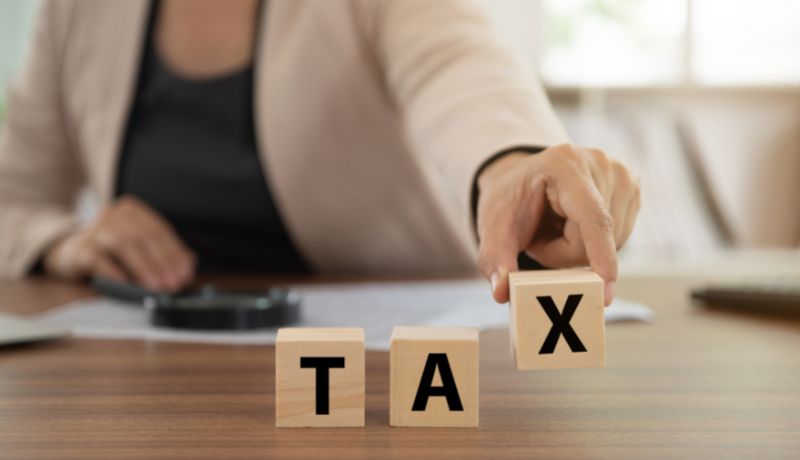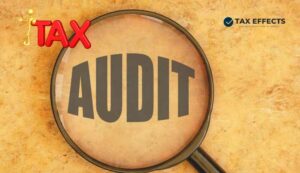In this article, we will discuss about tax treatment of various different Income & Investments made are:
(1). Public Provident Fund (PPF) –
a) Fully Tax exempt (Both Principal & Interest amount are fully tax exempt at the time of maturity).
b) Section – 80C deduction is available up to Rs 1.5 Lakhs.
c) Minimum investment amount = Rs 500 & Maximum investment amount = Rs 1,50,000
d) Lock-in-period = 15 years, Interest rate is 7.10% p.a.
e) For better interest earning, Investor can invest in PPF on or before the 5th date of the month to cover larger portion of interest earning whether investing through lumpsum or SIP mode.
(2). National Pension Scheme (NPS) –
a) 60% amount are tax exempt & balance 40% are taxable. Annuities have to be purchased of balance 40% amount.
b) Amount received from balance 40% annuities as pension will be taxable as per the income tax slab rates of the individual.
c) Section – 80C deduction is available up to Rs 1.5 Lakhs for NPS contribution. Section – 80CCD(1B) additional deduction of Rs 50,000 is also available.
d) Contribution to NPS is made in TIER-1 account only, Lock-in-period = Till the individual attain 60 years of age.
e) In case the total corpus of NPS Contribution is LESS THAN Rs 2 Lakhs, then FULL amount can be withdrawn.
f) In case of Medical Emergency, Marriage, Higher Education – NPS can be withdrawn up to certain limit after satisfying certain condition even before 60 years of age of Individual.
(3). ELSS Tax Saver MF –
a) Due to 3 years lock-in-period in ELSS Tax Saver MF, it will always be treated as Long Term Capital Gain (LTCG) taxable @ 10% + 4% Cess (Surcharge, if applicable) over & above Rs 1 lakh gain u/s 112A.
b) No Indexation benefit will be available. No Rebate u/s 87A will be allowed
c) Section – 80C deduction is available up to Rs 1.5 Lakhs.
d) In case of SIP Investment, on every SIP investment it will be treated as new purchase & 3 years lock-in will be counted from that date.
(4). Employee Provident Fund (EPF)–
a) Minimum contribution by employer 12% of Basic Salary + D/A.
b) Contribution can be made by both Employer & Employee. Interest rate is 8.15% p.a.
c) Contribution amount is allowed as deduction u/s 80C up to Rs 1.5 Lakhs.
d) Maturity amount is tax free only on completion of 5 years of period of employment. EPF can be withdrawn while permanently quitting the job or transferring from one job to another.
e) INTEREST received on EPF will be TAXABLE if INTEREST amount received exceeds Rs 2.5 Lakhs during a financial year under the head Income from Other Sources as per slab rates of the individual.
i.e., Principal amount of EPF contribution will be EXEMPT but INTEREST received on EPF contribution will be TAXABLE if INTEREST amount received exceeds Rs 2.5 Lakhs during a financial year.
(5). Mutual Fund (Equity Oriented), Equity Shares & Units of Business Trust –
a) If MF (Equity Oriented), Equity Shares & Units of Business Trust are held for < 12 months from date of Investment, it will be treated as Short Term Capital Gain (STCG) taxable @ 15% + 4% Cess (Surcharge, if applicable) u/s 111A.
b) If MF (Equity Oriented), Equity Shares & Units of Business Trust are held for > 12 months from date of Investment, it will be treated as Long Term Capital Gain (LTCG) taxable @ 10% + 4% Cess (Surcharge, if applicable) over & above Rs 1 lakh gain u/s 112A. No Indexation benefit will be available. No Rebate u/s 87A will be allowed.
c) Basic Exemption limit will be allowed to RESIDENT individuals on STCG u/s 111A & LTCG u/s 112A. Maximum SURCHARGE payable on tax amount u/s STCG u/s 111A & LTCG u/s 112A will be restricted to 15%.
(6). Mutual Fund (Debt Oriented), Any other Capital Assets –
a) If MF are held for < 36 months from date of Investment, it will be treated as Short Term Capital Gain (STCG) taxable as per income tax slab rate of Individual + 4% Cess (Surcharge, if applicable).
b) If MF are held for > 36 months from date of Investment, it will be treated as Long Term Capital Gain (LTCG) taxable @ 20% (with INDEXATION benefit) + 4% Cess (Surcharge, if applicable).
However, as per AMENDMENT in Budget 2023 (i.e., from 1st April, 2023), LTCG on sale of debt oriented MF will be taxable as per income tax slab rate of Individual + 4% Cess (Surcharge, if applicable).
c) Any other capital assets INCLUDES Bullion, Jewellery, Archaeological Collection, silver, Utensils, Precious Stones, Drawings, Paintings or any other capital assets.
(7). Sale of Immovable Property (Land & Building), Unlisted Shares –
a). If property is held for < 24 months from date of Investment, it will be treated as Short Term Capital Gain (STCG) taxable as per income tax slab rate of Individual + 4% Cess (Surcharge, if applicable).
b). If property is held for > 24 months from date of Investment, it will be treated as Long Term Capital Gain (LTCG) taxable @ 20% (with INDEXATION benefit) + 4% Cess (Surcharge, if applicable) u/s 112. Cost of Improvement will also be available.
c). Basic Exemption limit will be allowed to RESIDENT individuals, Maximum SURCHARGE payable on tax amount will be restricted to 15% on LTCG u/s 112 (Sale of Immovable Property) NOT against Unlisted Shares.
d). Exemption u/s 54 & 54F can be claimed by assessee selling immovable property if assessee invest the amount of sale consideration 1 year before or 2 year after date of sale in purchasing any other Residential House Property or Construct any house property within 3 year after date of sale.
However, the NEW residential house property purchased CANNOT be sold within 3 years from date of purchase of property, otherwise the LTCG exempted earlier will be taxable & any gain arising from sale of NEW residential house property will also be taxable as STCG or LTCG (depending upon period of holding of property).
Further, Exemption u/s 54EC can also be claimed by investing in NHAI or RECL bonds within 6 months from date of sale of immovable property maximum up to Rs 50 Lakhs.
Lock-in-period of 5 years will apply from date of investment in NHAI or RECL bonds. If BONDS is REDEEMED before 5 years or even if any loan/security is taken on such bonds during lock-in-period, then the LTCG exempted earlier will be taxable & any profit arising from redemption of NHAI or RECL bonds will also be taxable.
Any Interest received from investment in NHAI or RECL bonds will be taxable as per as per income tax slab rate of Individual under the head “Income from Other Sources”.
e). TDS @ 1% u/s 194-IA on SALE of immovable property is to be deducted by BUYER on payment made to RESIDENT SELLER on Sale Consideration or Stamp Duty Value of Property (whichever is higher), exceeding Rs 50 Lakhs.
TDS u/s 195 at applicable rates + surcharge (if any) + cess @ 4% (mandatory) to be deducted by BUYER on payment made to NON – RESIDENT SELLER on sale of immovable property of ANY VALUE even if Sale Consideration of property is LESS THAN Rs 50 Lakhs.
(8). FD, Saving Bank Interest, Interest on bonds, Any Monetary Gift received (other than from relative) & any other interest –
a) Taxable under Income from Other Sources as per income tax slab rate of Individual.
b) Deduction u/s 80TTA up to Rs 10,000 on Saving bank interest to Normal Individuals
c) Deduction u/s 80TTB up to Rs 50,000 on Saving bank interest, FD Interest is available to SENIOR CITIZEN Individuals.
d) TDS u/s 194A @ 10% of interest on deposits amount is deducted if amount of interest received in a financial year exceeds Rs 50,000.
e) Monetary gifts received from RELATIVES (as defined under Income Tax Act) is FULLY exempt from tax.
Any Monetary gifts received from person other than RELATIVES is exempt up to Rs 50,000 aggregated as a whole amount in a financial year.
(9). ULIP Policies Taxation –
a) ULIP insurance policy is in the nature of Insurance & investment policy, Lock-in-period = 5 years.
b) Any premium paid on ULIP is allowed as deduction of Rs 1.5 Lakhs u/s 80C.
c)If ULIP policy is taken BEFORE 01.02.2021 & Lock-in-period of 5 years from date of policy has been fulfilled by the policyholder, then any amount received on maturity of ULIP policy will be EXEMPT from tax in the hands of policyholder.
d) Maturity amount of ULIP will be TAXABLE, if premium amount exceeds Rs 2.5 lakhs in a financial year if ULIP policy is taken ON or AFTER 01.02.2021 whether a single ULIP or more than 1 ULIP is taken of amount more than Rs 2.5 lakhs.
Taxable amount will be income portion (i.e. Amount received on maturity – Premium paid during tenure of policy).
e) Maturity amount of ULIP will be taxable as Long Term Capital Gain (LTCG) u/s 112A @ 10% + 4% Cess (Surcharge, if applicable) over & above Rs 1 lakh gain. No Indexation benefit will be available.
(10). Life Insurance Policies Taxation –
a) Premium amount actually paid is allowed as deduction of Rs 1.5 Lakhs u/s 80C & Maturity amount received from Life Insurance Policies will be exempt u/s 10(10D) if:
- i) Premium amount is up to 10% of Sum assured of policy amount if policy is taken on or after 01/04/2012
- ii) Premium amount is up to 20% of Sum assured of policy amount if policy is taken on or before 01/04/2012b) As per AMENDMENT in Budget 2023 (i.e., from 1st April, 2023), If premium amount exceeds Rs 5 lakhs in a financial year if Life Insurance Policy is taken on or after 01.04.2023 (whether individual policy or aggregate of policy taken together or separately) then maturity amount or survival benefit or any moneyback received will be TAXABLE as income from other sources as per the income tax slab rates of an individual on the INCOME PORTION (i.e., Amount Received – Premium paid during tenure of policy).
b) TDS u/s 194DA will be deducted @ 5% on the INCOME PORTION (i.e., Amount Received – Premium paid during tenure of policy) of Life Insurance Policy, if any maturity amount or survival benefit or any moneyback received is taxable in the hands of policyholders.
(11). Dividend Income –
a) Taxable under Income from Other Sources as per income tax slab rate of Individual.
b) TDS u/s 194 will be deducted @ 10% if amount of dividend exceeds Rs 5,000 in a financial year from EACH COMPANY consider separately.
c) Maximum SURCHARGE payable on taxable amount of dividend income will be restricted to 15%.
(12). Trading Income (Future & Option Profit & Intraday Profit) –
a) Future & Option Profit is treated as Normal Business Income & Intraday Profit is treated as Speculation Business Income.
b) Expenses related to Trading Business such as Internet bill, Mobile charges, Electricity charges, Trading & Subscription charges, any other charges etc. are allowed to be deducted from trading profit.
c) Business Income (whether Normal or Speculation) is taxable under the head “Profit & Gain from Business & Profession” as per income tax slab rate of Individual.
d) Loss from Future & Option & Intraday is allowed to be set off from Income from Other Sources, Rental Income, Short Term & Long term Capital Gain Income in the SAME FINANCIAL YEAR in which loss has been incurred.
e) For Future & Option & Intraday Loss, it is MANDATORY to prepare books of accounts & to file Income Tax Return on or before due date as specified u/s 139(1) (normally 31st July of the Assessment Year).
f) Loss from Future & Option can be carry forward up to 8 years & Loss from Intraday can be carry forward up to 4 years from end of the relevant assessment year & will be set off from same head of income in future year.
g) If the TURNOVER/GROSS RECEIPT from Future & Option & Intraday trading EXCEEDS Rs 10 Crores in any financial year, then it is MANDATORY for the assessee to get its books of accounts AUDITED u/s 44AB.
(13). Rental Income –
a) Rental Income is treated as “Income from House Property” taxable as per income tax slab rate of Individual.
b) Standard deduction flat @ 30% u/s 24(a) is allowed from rental income & interest on any home loan taken is allowed maximum up to Rs 2 lakhs u/s 24(b). NO further deduction is allowed.
c) Municipal tax paid by OWNER of PROPERTY is allowed to be reduced from rental income. If Municipal tax is paid by TENANT = NOT allowed as deduction.
d) If Rental income received by assessee exceeds Rs 50,000 PER MONTH in any financial year then the person paying the rent is liable to deduct TDS @ 5% u/s 194-IB on TOTAL AMOUNT of RENT received by assessee during financial year in the MARCH month or in the month in which property is vacated, whichever is earlier.
If assessee do NOT provide his PAN, then TDS @ 20% u/s 194-IB will be deducted on TOTAL AMOUNT of RENT received by assessee, however the total TDS to be deducted will not exceed the last month rent amount.
(14). Sovereign Gold Bonds (SGB) –
a) SGB are issued by the Government of India having interest rate @ 2.5% p.a. paid half-yearly & has lock-in-period of 8 years from date of investment.b) It has the option of pre-mature redemption after 5 years. If SGB is redeemed on maturity (after 8 years) – NO Capital Gain tax will arise.
However, it is sold BEFORE maturity (i.e., after 5 years but before 8 years) – Entire profit is taxable as LTCG @ 20% with indexation benefit.c) The MINIMUM investment amount is 1gm. Investors can purchase SGB in denomination of grams only. NO fractional purchase is allowed.
If investors purchase SGB through online mode, then Rs 50 per gram DISCOUNT is available & also GST @ 3% on purchase is NOT applicable.
b) Interest received @ 2.5% p.a. on SGB is taxable as per the income tax slab rates of Individual under the head “Income from Other Sources”.
(15). Agricultural Income –
a) In India, Agricultural Income is EXEMPT from income tax. If any individual earning income entirely from agricultural activities, then that income is fully exempt from tax.
b) Agricultural Income INCLUDES income earned from agricultural activities like farming, breeding, livestock, cultivation of crops, sale of agricultural produce, rent received from agricultural land, any other income from agricultural activities etc.
c) Sale of RURAL agricultural land is NOT treated as CAPITAL ASSETS & NO tax liability will arise.
However, Sale of URBAN agricultural land is treated as “CAPITAL ASSETS” & will be TAXABLE u/h “Capital Gain”.
d) If any individual has income ONLY from agricultural activities & his/her income does not exceed the Basic Exemption Limit (BEL) then he/she is NOT required to file ITR.
However, if total income exceeds the BEL, then the individual is required to file his/her ITR, even if income consists of only agricultural income.
Agricultural income though exempt from income tax, still REQUIRED to be reported in ITR under “exempt income”.
(16). Virtual Digital Assets (VDA) (Crypto Currency, Bitcoin, Etherium etc.) –
a) Any income from transfer of VDAs is taxable @ 30% + surcharge (if any) & cess @ 4% (mandatory) u/s 115BBH.
b) NO deduction in respect to any expenditure, deduction or allowance will be allowed. Only cost of acquisition will be allowed to be reduced.
c) Loss from transfer of VDAs is NOT ALLOWED to be SET-OFF against any other income or any other VDA gains & also NOT ALLOWED to be CARRY FORWARD.
d) In the case of gifting of VDAs, the tax payment will be done by the recipient.
e) TDS u/s 194S will be deducted @ 1% by the person responsible for paying any sum at the time of payment/credit of any sum to any resident as consideration for the transfer of a VDA.
NO TDS If aggregate value does not exceed Rs 10,000 during the financial year if individual is a person who does NOT have any business income in the concerned FY, HUF, company, firm, LLP.
If any individual or any other assessee have any business income in the concerned FY then NO TDS if aggregate value does not exceed Rs. 50,000 during the FY.
Happy Readings!
Disclaimer: The information contained in this website is provided for informational purposes only, and should not be construed as legal/official advice on any matter. All the instructions, references, content, or documents are for educational purposes only and do not constitute legal advice. We do not accept any liabilities whatsoever for any losses caused directly or indirectly by the use/reliance of any information contained in this article or for any conclusion of the information.









